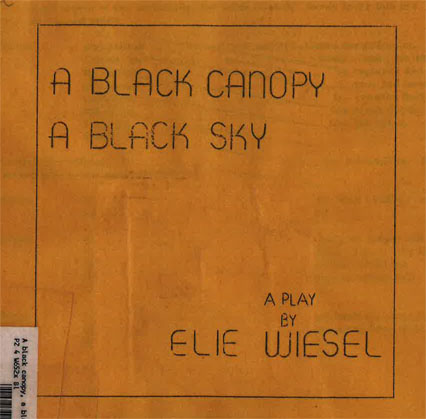Elie Wiesel’s Plays as Kaddish: The Sacred Duty to Remember and Resist
By Prof. Lori R. Weintrob
Director, Wagner College Holocaust Center
This article is an expanded version of remarks presented by author in conjunction with the National Jewish Theater Foundation /Holocaust Theater International Initiative 3rd Annual Remembrance Day Play Reading program honoring Elie and Marion Wiesel
Elie Wiesel expressed faith in the power of dialogue, words spoken aloud, to be transformative. Urging survivors to speak and the next generation to listen, Elie Wiesel pledged “Whoever hears an eyewitness, becomes an eyewitness”(1). Wiesel first said these words in Jerusalem at Yad Vashem on the 57th anniversary of his liberation from Buchenwald concentration camp. He then related how on the day of his liberation, he joined a group of Jewish adolescents in celebrating their freedom by saying Kaddish, the Jewish prayer for the dead. An orphan at age 16, he had a sacred duty. Wiesel explained: ”I thought that this Kaddish would never end; it would last until we died, and in a way I was right.”
 The Kaddish prayer elevates the soul of the deceased, as the mourner calls upon the community to publicly affirm their faith. Similarly, words of testimony spoken aloud turn us away from anger and hatred to God and man and indifference to the suffering of others, towards a shared ethic of faith and hope.
The Kaddish prayer elevates the soul of the deceased, as the mourner calls upon the community to publicly affirm their faith. Similarly, words of testimony spoken aloud turn us away from anger and hatred to God and man and indifference to the suffering of others, towards a shared ethic of faith and hope.